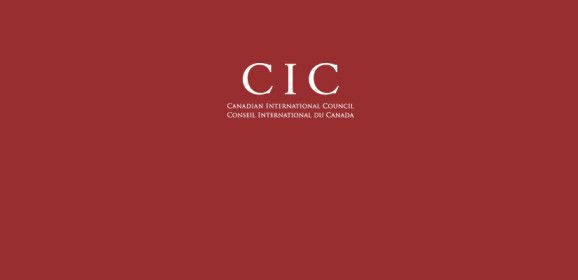Section: Canadian International Council (Canada)
The Balkans’ unravelling peace
It was not that long ago, well into the late 2000s in fact, that the complex network of internationally brokered peace agreements that pacified the Western Balkans in the wake of the 1991-2001 Yugoslav wars were held up as hallmarks of post-Cold War diplomacy. Bosnia and Herzegovina’s Dayton peace accords, in particular, were regularly...
Will 2018 bring renewed attention to Eastern Ukraine?
The past year has been one of chaos and upheaval. At the outset of 2017, the Islamic State still controlled huge swaths of Iraq and Syria and aimed to make new land claims world-wide; now, it has virtually no territory to speak of. At the beginning of the year, the threat from North Korea felt dormant; now, Pyongyang is flexing its muscles with...
Ukraine wants and needs Western support, but will that help end the conflict?
Following meetings on Ukraine last month in Europe, Canada announced this week it is extending military training in the country until March 2019. When Western defence ministers and heads of state had gathered in Munich last month for their annual security conference, the situation in Eastern Ukraine was among the topics of discussion, with...
Evaluating Harper’s Office of Religious Freedom
With the federal election days away, and the spotlight on the current government’s accomplishments and follies, an unprecedented initiative of Prime Minister Stephen Harper comes to mind: the Office of Religious Freedom (ORF), which was announced in February 2013 at Ahmadiyya Muslim Jama’at in Toronto. Deemed a positive step forward...
Munk Debate on Foreign Policy: The best debate of all?
Monday night, the Munk Debate forum hosted this election’s only debate focusing on foreign policy. Party leaders Stephen Harper, Justin Trudeau and Tom Mulcair went head-to-head over Canada’s record on refugees, Bill C51 and the Arctic. Was it a success? We rounded up reviews from a handful of experts that delve into who won, who...
Election 2015: Devising new defence platforms (Part 3)
A couple of weeks ago, I was frustrated that the major parties had not articulated Defence platforms so I wrote one for the Liberals and then one for the NDP, and then the Liberals came out with their statement. I left the Conservative platform for last. Why? Because it is the hardest to write. Why? Because it could simply be “more of the same”...
Election 2015: Devising new defence platforms (Part 2)
Part 1, Steve Saideman’s Liberal platform, can be read here. Last week I proposed a Liberal Defence Party Platform since the Liberal Defence Critic had posted one that was pretty thin. I promised to write platforms for the other two major parties (even I would not want to inflict my French on the Bloc Quebecois and the Greens can just shut...
Leadership labels: No, Harper is not a neo-con
A recent piece by Matthew Bondy in Foreign Policy argues that Stephen Harper is “the Last Neocon” and “Bush-era Hawk.” Bondy largely supports this view by pointing to Harper’s support for the 2003 Iraq War, Afghanistan and his support for “advancing freedom, democracy, human rights and the rule of law.” Let’s get this straight —...
Assessing Canada’s Global Engagement Gap
Much of the recent debate over Canada’s global engagement has focused on tone. We decided to focus on the substance of Canada’s global engagement. In order to understand the state of Canada’s global commitment today, we assessed “global engagement” by looking at combined spending on official development assistance and defence....
Refugee Crisis: Are those most responsible the least affected?
The tragic photo of the Syrian little boy washed ashore in the Mediterranean has truly shocked the world. So are the video clips of mass of asylum seekers and immigrants from the Middle East and Africa in Budapest central train station, and young people cutting through barbed wires, barriers and walls that have been erected to keep them away from...



